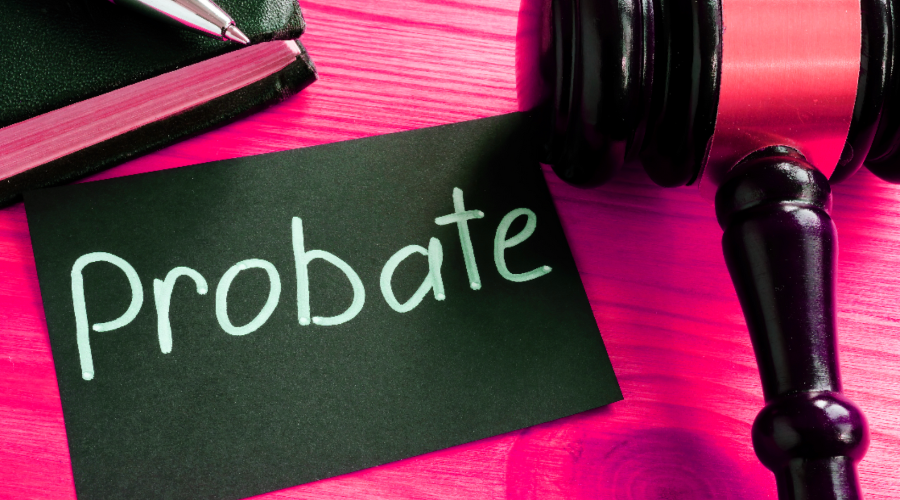Selling a House in Probate in California Guide
If you’ve recently had a loved one pass away, it can take some time to figure out how to handle their real estate. Before you can take official possession of the house, you usually have to go through the probate process. However, there are some California loopholes that may let you sell earlier. Selling a home in probate can require some extra paperwork, but it doesn’t have to be confusing. Mrs. Property Solutions provides the expertise and resources you need to sell a property during or after probate. Keep reading to learn everything you need to know about selling California inherited homes.
Table Of Contents
- What Does Probate Sale Mean in California?
- Probate Process for Selling Real Estate in California
- When Can the Executor Sell the Probate Property in California?
- Can You Sell a House Before Probate Is Complete in California?
- Do You Need to Go Through the Probate Court to Sell Your Inherited California House?
- Different Ways to Sell a Probate House in California
- Probate House Sale Frequently Asked Questions
- Discover the Easiest Way to Sell a House In Probate
What Does Probate Sale Mean in California?
Probate is a legal process that involves formally transferring a deceased’s assets to their beneficiaries. A person’s goods don’t immediately go to their descendants the second they draw their last breath. Instead, the court reviews all the estate assets pays off any debtors, and makes sure there are no irregularities in the will. Probate administration usually involves a named executor who pays off taxes, tracks down beneficiaries, and handles upkeep until the filing is complete.
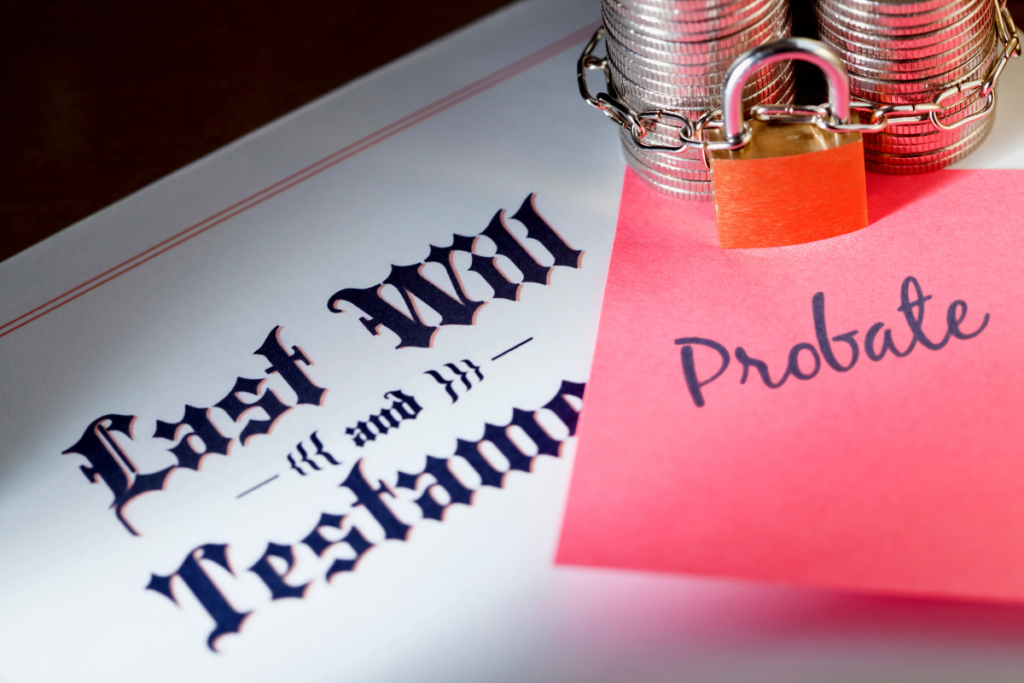
Ultimately, a probate sale is any sale that happens in probate. In some situations, beneficiaries might want to sell the property so they don’t pay for upkeep during the rest of the filing process. In other situations, the California court might require the property to be sold so you can pay off any creditors. Some families also use probate sales to quickly transfer the property and generate income without having to wait for the court to finalize everything.
Because all the legal aspects of probate aren’t finalized at the time of the transaction, you can’t just throw the property on the market and pocket the funds. Instead, you usually have to get legal approval. Keeping track of all these liabilities can make the whole process of selling a California home in probate take a little longer.
Probate Process for Selling Real Estate in California
What can you expect when selling a California property during the probate period? There can be some slight variation in the probate seller process depending on your situation. However, all probate sellers usually need to follow these steps when selling an estate in probate.
- File probate with your local court: The first thing probate sellers need to do is go to the court and officially start the process. California has some of the strictest laws for estate inheritance in the nation. If you try to sell the estate without filing, you can face legal charges. Furthermore, parts of the decedent’s estate might be frozen, so any attempt at a sale in probate usually won’t go through.
- Wait for the court to confirm an executor: If the deceased left estate planning documents or a trust, there is a chance that they might’ve already selected someone as a personal representative. Otherwise, the state may appoint a personal representative for them. This is the only person with the legal authority to handle sales in probate, so you need to get them appointed before proceeding.
- Get authorization to sell the property: There are two ways to get authorization to sell an estate in probate in California. Either the probate sellers can get the court to confirm a specific plan after their loved one dies, or the administrator can apply for authorization to put the estate up for sale.
- Notify all potential heirs of the sale: You’ll have to formally notify all descendants about the potential probate transaction. The descendants can either sign a waiver that lets you go ahead and sell, or you have to wait 15 days to see if anyone objects to you being a probate seller.
- Sell the property: Once you’ve done all this, you can finally proceed with the transaction. In some situations, the court might set rules on how the transaction can go. The home might have to be sold for a certain amount of money, and there might also be a time limit on how long the property is listed.
When Can the Executor Sell the Probate Property in California?
As you can see, there are several conditions that have to be met before you can start trying to sell an California inherited property in probate. The most straightforward way to get permission is by applying to be a seller under the Independent Administration of Estates Act (IAEA). This California law. This gives the executor the legal right to decide how to handle the deceased’s estate in probate. They can market the home, determine its value, and sell it just like a private real estate sale.
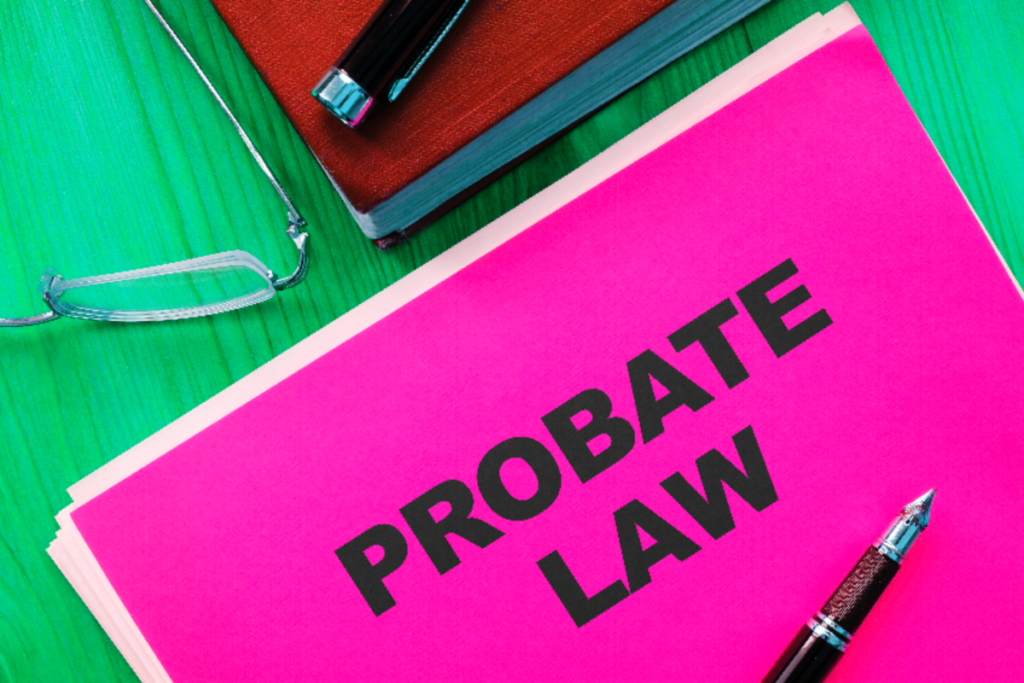
If there’s no debt involved, the administrator does have to get approval from the descendants before selling assets. In situations where everyone agrees that their inheritance ought to be sold, this is fast and easy. If an heir files a formal objection, things get more complicated. The probate court can hold a hearing and determine whether or not the property can be sold. You’ll have to present information and explain your view, and the court might temporarily pause the sale of assets until probate is done.
If there was debt after your loved one passed, the court can force a sale in probate even when beneficiaries don’t agree. However, in situations with debt, they can place further restrictions on potential sales. The exact rules vary on a case-by-case situation, and different counties in California can have different guidelines. Usually, offers have to be for at least 90% of the appraised value, and once an offer is accepted, there might be a waiting period where sellers can accept other bids. These rules are meant to ensure all people with a claim on the house in probate get a fair deal.
Once the executor has been appointed, they have the legal right to market the property to buyers. If the deceased left substantial debt, you’ll probably need the court to approve any offer you’d like to accept. You’ll also need to remember to pay all personal fees associated with the sale
Can You Sell a House Before Probate Is Complete in California?
Don’t let all the lengthy rules about probate scare you away from selling your inherited estate. Yes, it’s theoretically more straightforward to sell personal property after probate. However, the reality is that a lot of sellers put an estate on the market before they get done with probate. Sellers just have to make sure to follow all legal guidelines and get things done in a timely, professional manner.
With a little help from a house-buying business like Mrs. Property Solutions, probate sales can be fairly straightforward. After your legal representatives help you get the right permissions, the sale can proceed fairly similar to a normal personal sale.
When you sell in California before you finish probate, all the funds just become part of the estate. They’ll go into escrow accounts while the courts finalize probate. If necessary, the legal system might take some of these funds and use them to pay any debt. Otherwise, they go to whoever inherited the estate that was sold. If multiple people had a valid claim on the property, the court may distribute the funds between parties.
Do You Need to Go Through the Probate Court to Sell Your Inherited California House?
The answer to this question depends on the current status of the seller’s property. If the house was already probated and the estate is legally yours, you don’t need to get the courts involved. You only need to worry about the probate court if things still aren’t finalized. When the estate hasn’t been probated yet, it’s essential to work all the personal details out with the court.
Without assistance from the court, you can run into a lot of personal problems. In some cases, people try to sell without the court’s permission and then realize they can’t finalize the sale because the estate isn’t technically in their name yet. Others may find that they cannot even start the process because they don’t have the legal authorizations needed to list the home.
This doesn’t necessarily mean you need to involve the probate court in the whole process though. Thanks to the IAEA, you can just apply for authorization at the start of the process. If the court grants you this personal authorization, you don’t have to go through the court for each step of listing the estate and considering offers on the house. By following the probate court’s rules early on, you can often avoid needing their input for the rest of the sale. In cases where IAEA authorization isn’t possible, you’ll need to include the courts more frequently. Expect to file approval paperwork for things like listing the estate, negating commission fees, and accepting offers.
California Probate House Sale Issues
Usually, as long as you follow the court’s guidelines, probate estate sales go smoothly in California. When you have an experienced real estate professional or attorney to help you out, selling a property in probate just requires a few extra signatures on documents. However, things can go wrong if you make a mistake or encounter an unusual situation.
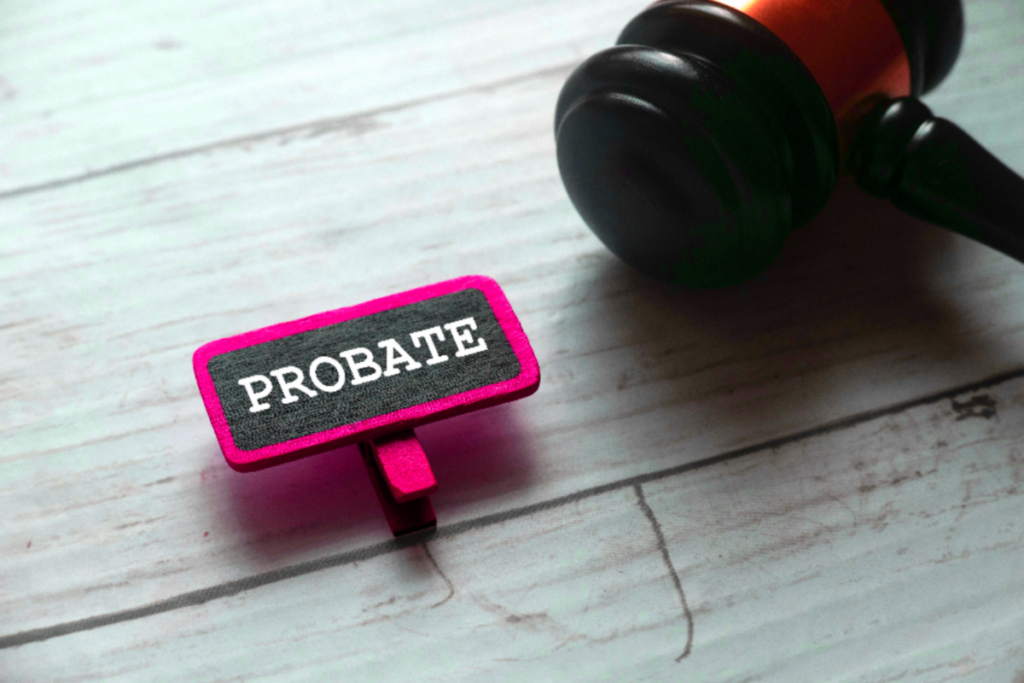
Here are some potential issues that you need to be aware of.
- Think twice before deciding to fix up the estate before the sale. Though this can increase the estate’s value, the sellers need authorization from the estate’s administrator to make personal repairs.
- It can take a bit of time to get a court date, and these delays can cause financial problems for many beneficiaries. To avoid these roadblocks, try to file your petition to sell the house or become the estate representative as soon as possible.
- Be prepared for potential challenges from other people with a personal right to inherit. Try to document all discussions about the estate and prepare any proof that will show why the house needs to be sold.
- If you copy a standard real estate contract, you can accidentally invalidate the sale. Make sure to include details such as “the seller is John Doe, the personal representative of Jane Doe’s estate.”
- Closing can get delayed if you don’t take court dates into account, and this can cost you a buyer. Always make sure your contract works with all necessary court dates
- Some relatives can get excited about a big closing price and assume they’re about to be rich. Don’t forget that inheritance tax and capital gains tax can eat up some of the money you make selling the estate.
- If the deceased had debts and fees to pay, they might affect the seller. Selling an estate that is in foreclosure and probate adds an extra layer of complexity to the task.
Different Ways to Sell a Probate House in California
When it comes to actually selling your house, you have a lot of allowable options. As long as you’re in accordance with probate procedures, you can sell the California house however you would prefer.
Listing the Probate Property With a California Real Estate Agent
The most traditional method is listing your property with a realtor. After the administrator who represents the estate gets authorization to sell the house, they just meet with a normal real estate agent and put the house on the market. This is a popular choice just because it’s so common. It allows a lot of potential buyers to see your house, and many sellers like that it’s a familiar process they’ve encountered before.
The big downside is that many realtors don’t spend a lot of time dealing with probate. They can miss court deadlines, fail to get the right certificates, skip estate affidavits, and forget to adjust contracts to account for probate legalese. Especially if you’re working with a new agent, they might not have the expertise to guide you through the whole process. Furthermore, some real estate agents might not work with unique types of property like mobile homes or houses in foreclosure. Finally, don’t forget that the sellers have to pay a commission which can make thousands of dollars worth of difference in your final profit.
Selling the Inherited Property to a Family Member in California
This option is usually only considered in cases where one family member wants the house now and doesn’t want to wait for probate to finish. In addition to passing on the title more promptly, it also allows someone to take full ownership of a house. For example, if a California house is split between three siblings but only one wants it, they can buy the house and compensate the other sellers financially. This method is convenient because the sellers can skip a lot of costly fees and avoid the lengthy process of finding someone interested to buy the house.
However, you need to take into consideration the fact that this method won’t be a way to avoid paying off the debts of the person who passed away. When debt is involved, the court usually requires the house to sell for a price similar to the appraisal. The IRS can also examine title transfers and sales between family members to ensure people aren’t trying to use sales to get around gift or inheritance taxation. Another potential downside is that it can go poorly when you involve your family in business matters.
Selling a California Probate House As-Is to a Cash-Home Buyer
For many people selling after the owner passed but before probate is done, working with a cash buyer can provide the best of both worlds. This sort of sale involves finding a company that buys houses in bulk. They give the sellers a lump sum for the house, and you don’t have to fix it up or spend a lot of time haggling with real estate agents.
This method of selling a house in probate has all the convenience of selling to a family member while also ensuring you get a great deal during the sale. You do a direct sale instead of wasting time with the house sitting around on the market. Cash buyers don’t make you spend a bunch of time enhancing curb appeal, and they’ll even clear out unwanted belongings for you. Unlike selling to someone you know, they’re always professional and always offer reasonable deals. They don’t require you to pay costly fees either. Since they provide cash offers and accept the home as-is, the seller can even skip the hassle of getting the estate approved by mortgage lenders and insurance companies.
Probate House Sale Frequently Asked Questions
Interested in learning more? Here are some answers to common questions we get.
Can you sell a house without going through probate in California?
You don’t need to wait until probate ends before you sell the house. Just keep in mind that selling the house early doesn’t mean the sellers get to avoid probate altogether. After you have closed on the house deal, the funds from the sale end up in escrow until you pay all necessary inheritance taxes, pay fees, resolve debt, and determine who has legal rights to inherit the funds.
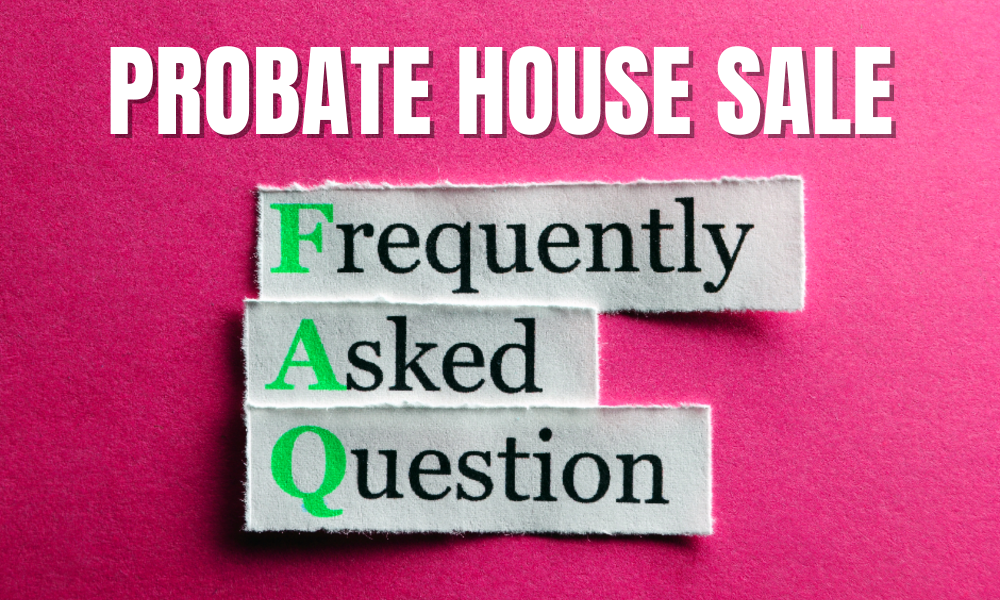
Can you live in a house during probate?
If you already lived in the house before your loved one died and you’re one of the potential heirs, you can keep living in it. For example, a surviving spouse can stay even if the house is part of an intestate estate. However, if it wasn’t already your personal residence and you don’t have the deed, you will need to get permission from the estate trustee before you move in.
Can you empty a house before probate in California?
This varies depending on the situation. Usually, the court doesn’t want you to empty the house because the personal items inside are part of your loved one’s estate. However, if the designated administrator can prove the personal items weren’t costly and are essentially garbage, you may be able to remove them before the probate procedure finishes.
How long does it take to sell a California house in probate?
This usually depends on how experienced your personal team is. The average time to sell a house in California is between 15 to 30 days. If the people providing you with legal advice make sure to file all petitions to the clerk’s office in a timely manner, the sellers can often sell the house around a month after the owner passed. However, if you forget to ask the court for permission right away, you might have to wait a few extra weeks to finalize the house sale.
Can you empty a house before probate?
Unless you have permission from the court or your loved one will an item to you in a living trust, you usually cannot empty a house. The personal items in the house are part of your loved ones’ estate, so they’re included in the probate procedure and may actually belong to creditors.
Do all heirs need to agree to sell an inherited property?
In most cases, you can’t do things like sell your parents’ house after they passed away without your siblings agreeing. The only common exception occurs when the person who passed away has such large debts that their property will need to go towards paying off the debt. In rare cases, if some of the heirs don’t agree but the other heirs can show documentation that a sale is necessary, the court might give permission to proceed with the house sale.
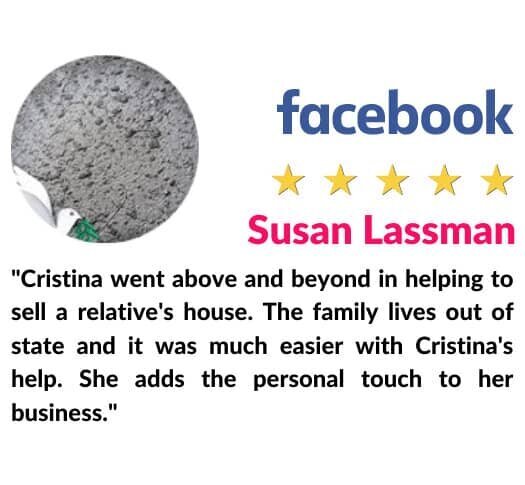

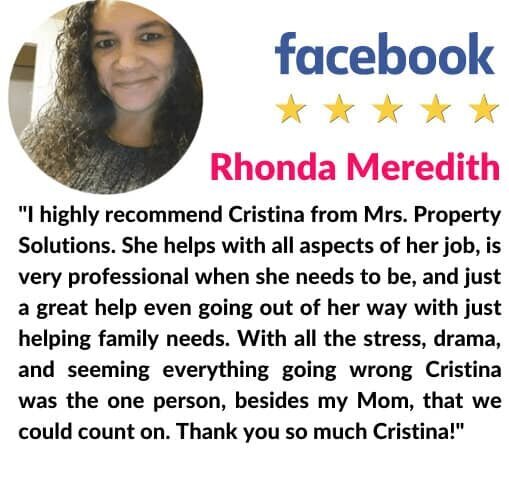
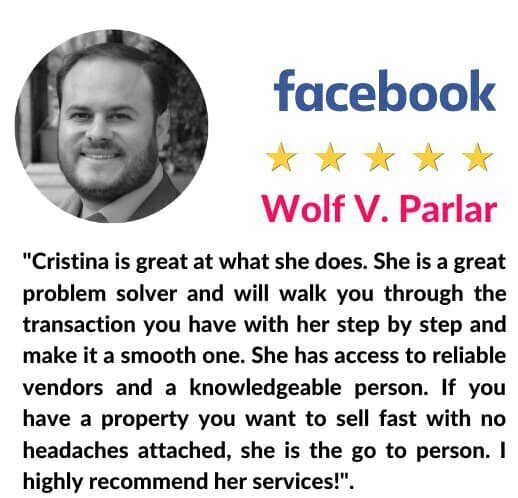
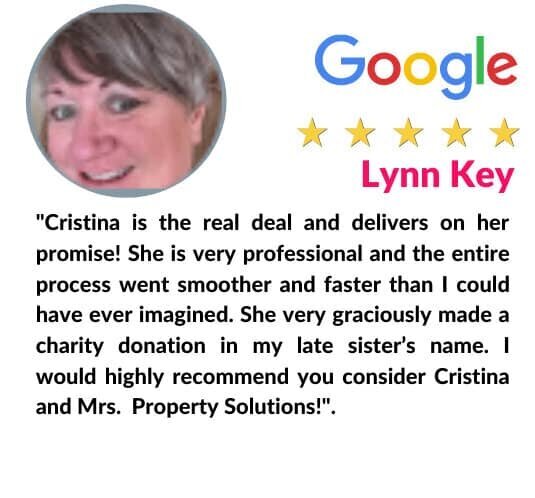
Discover the Easiest Way to Sell a House In Probate
Ultimately, selling a house in probate can be a great way to resolve financial issues and get your inheritance as promptly as possible. To avoid any hassle or stress, you just need to work with reliable professionals who have the right qualifications. As-is buyers that offer cash deals can simplify the process and help you navigate all the legal issues. Whether you’re selling a house in Los Angeles, San Diego, San Francisco, San Jose, or anywhere else in California, this guide applies to your situation!
If you have any more questions about how selling a house in probate works, Mrs. Property Solutions is happy to help. Contact our team of professionals to learn more.

